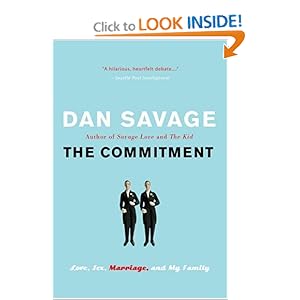As I've been pondering my last marathon and the paradox of decent base mileage for the training and relatively poor performance, I've decided that it's pretty obvious what happened. I didn't run fast enough. Duh. So, how do you run faster, you ask? Well, you, uhm, run faster. No, wait, let me explain. The way you build your muscles is by pushing them to do what they can't do yet - what they don't want to. So you figure out how fast your body wants to run, and then you run faster. Obviously, this has to happen in your training runs. As your muscles get better conditioned, stronger, whatever, you can run faster in the race, when it counts.
Now it turns out, the time to run faster in training is not really on the long runs, or so I've heard. When people talk about speed work, they're talking about relatively short runs (say, no more than 5 miles), and usually runs that are either broken up into small pieces or that have variable paces. Repeats, for example, could involve running a mile at a very fast pace, say for me a 7 minute pace, then resting a minute or so, then doing it again, then resting, and doing it again. A very hard workout (right now, for me) would involve maybe 4 or (someday) even 5 of those mile repeats. The point of it is that by having those little break periods in there I should be able to push my body to go at higher speeds, and thus get the conditioning in I need to be generally able to run quicker. Do I intend to run a 7 minute pace in a marathon? Hell no! Not even a half. I know people who can do 6 minute paces for a half marathon but that's just not me. But by doing those short, fast runs I can hopefully get to where I can do closer to an 9:00 or even 8:30 pace in a marathon. Hell, anything better than a 10 minute pace will be an improvement now.
I've avoided speed work in the past because 1) it's inconvenient (it really works best at a track, where you can judge your distance perfectly, or on a treadmill) and 2) it' s painful. As hard as a 15 mile run can feel, a very fast mile has a whole different level of effort and pain. Not more, really, just different. And you can't do that kind of effort in a long run. If you do it at the start, you'll never have the energy to finish. If you try it at the end, you won't have the energy to do the speed. Hence, the importance of the short run.
So, I'll be trying at least once a week to do short, fast intervals in one of my runs. It's counter to my usual method, which is steady speed at 7 mile or more runs, but that probably means it's exactly what I should do. I'll let you know how it goes (even if you beg me not to - *evil laugh here*).


1 comment:
Fast intervals teach your muscles how to move fast, very fast. But more important, fast intervals teach you how much pain you can endure and still run. Excellent practice for the last 6 miles of a PR marathon :) Pushing for a PR is a metal game more than anything I think. Intervals, run well, hurt. Think of it as PR practice ... most PRs hurt too.
Post a Comment